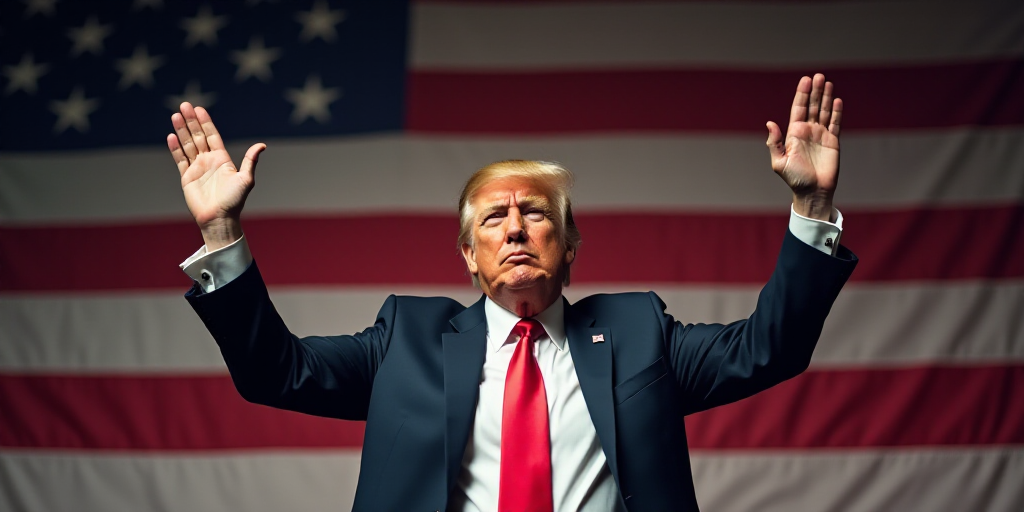Trade Tensions and Tariffs Impact Small US Businesses
The rollercoaster of tariffs imposed by US President Donald Trump on China has wreaked havoc on small American businesses reliant on Chinese production and with limited alternatives for sourcing. Analysts and business owners alike have reported the adverse effects of the ongoing trade tensions between Washington and Beijing.
Trade Tension Background
The tensions escalated to a 145% tariff on Chinese products and a 125% reciprocal tariff from China. However, both nations agreed over the weekend to reduce these tariffs to 30% on Chinese products and 10% on US goods as part of a 90-day truce starting Wednesday.
Small Businesses Struggle to Adapt
Anna Barker, owner of Mississippi-based Glo—a company that designs and manufactures toys in China—expresses her concerns about the situation. “The only option is to try and stay afloat amidst the waves or close the business,” she says.
Barker acknowledges that the 90-day pause is merely a temporary reprieve. “Placing orders, manufacturing products, and shipping them to the US takes considerable time,” she explains.
Though optimistic about the ongoing negotiations, Barker warns that 30% tariffs remain “enormous” for small businesses. Trump’s assertion that companies won’t pay tariffs if they manufacture in the US is complicated by the need to import machinery or raw materials in many cases.
“We are an American company,” Barker emphasizes. “Our top priority, if left to our own devices, would always be the US market, but it’s not feasible at this moment.”
To stay afloat, Barker’s company seeks growth in international markets.
Congested Trade Circuits
Steve Lamar, president of the American Apparel & Footwear Association (AAFA), believes that the truce might temporarily unclog what he considers a de facto trade embargo imposed on April 9, when high tariffs forced many companies to halt imports.
However, 30% tariffs—combined with previous administrations’ tariffs—will make back-to-school and holiday seasons expensive, according to Lamar. “You can’t avoid passing these high tariffs on to prices,” explains Diane Swonk, chief economist at KPMG.
This implies that producers, retailers, and consumers will bear part of the burden, with small businesses being disproportionately affected due to their narrower profit margins.
Moreover, shipping tariffs may rise due to disruptions in shipping caused by the tariffs. “There are a lot of backlogs accumulating in Chinese factories that now need to get shipped out,” says Josh Staph, CEO of Duncan Toys Company based in Ohio.
Barker confirms that her company competes to get products to ports amid a “highly congested” flow. Policy changes have triggered “panic and paralysis” among businesses, according to Swonk.
“Every time they see a window like the one we have now for 90 days, they have to rush,” she adds, driving up shipping costs.
Decline in Investments
The AAFA urges Trump to secure long-term agreements with China and other countries, providing businesses with more certainty. Without permanent tariff removal, the US may face “depressed investments,” according to Philip Luck, a researcher at the Center for Strategic and International Studies.
“Businesses remain in limbo” regarding sourcing and long-term investment, Luck adds.
Barker’s company may respond by expanding beyond the US, shipping products manufactured in China to European or other international markets to sustain its more than 30 US employees.
Key Questions and Answers
- What challenges are small US businesses facing due to tariffs? Small businesses reliant on Chinese production face significant hurdles, including high tariffs, supply chain disruptions, and the difficulty of transitioning to domestic manufacturing.
- How are tariffs affecting shipping costs? Tariffs have led to congestion in Chinese ports, causing backlogs and increased shipping costs. Additionally, businesses may pass these tariffs onto consumers through higher prices.
- What long-term effects might tariffs have on investments? Without permanent tariff removal, businesses may experience depressed investments due to uncertainty and increased costs.






